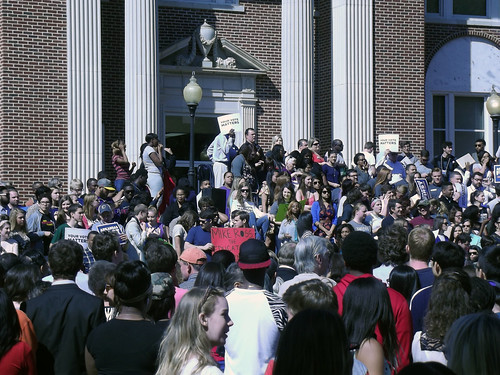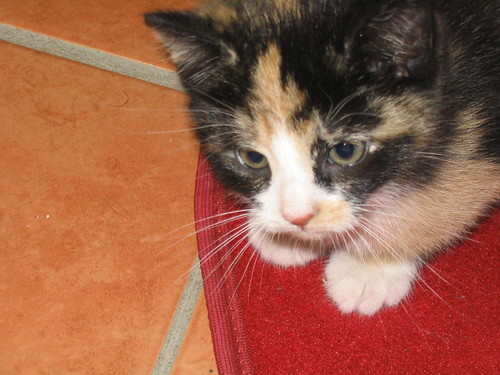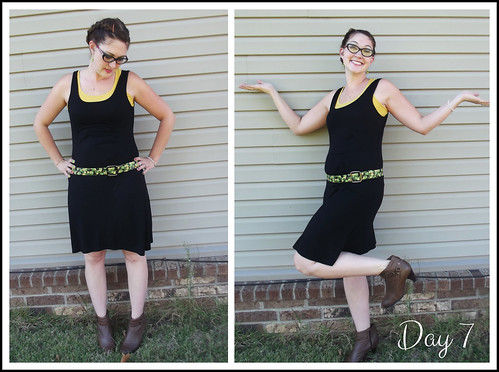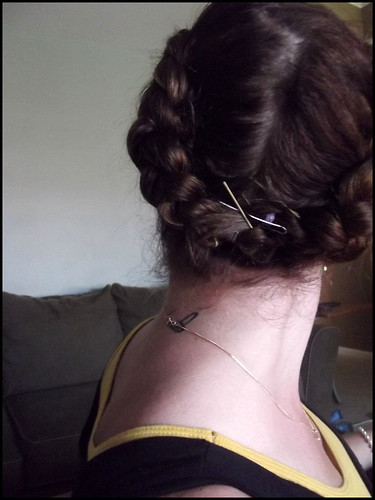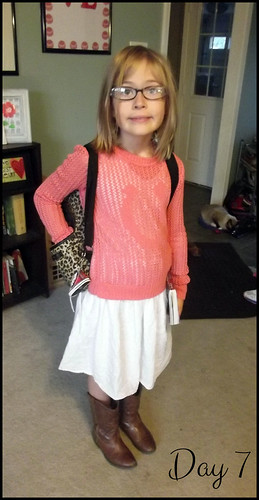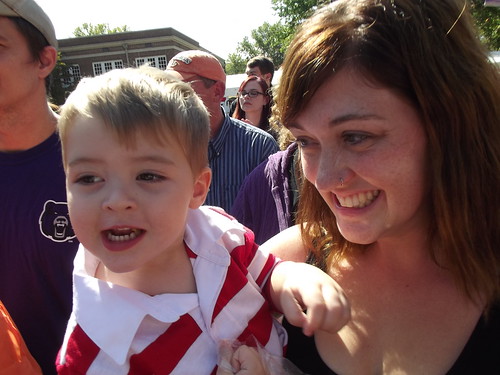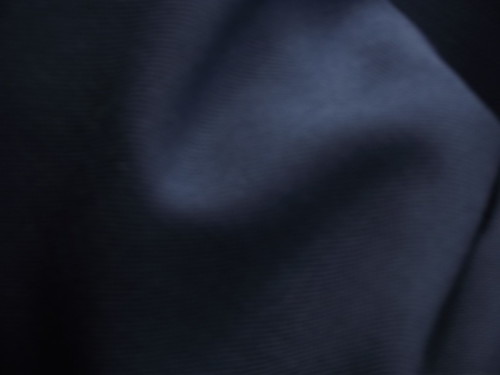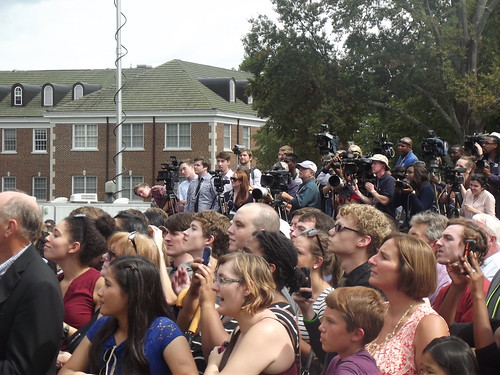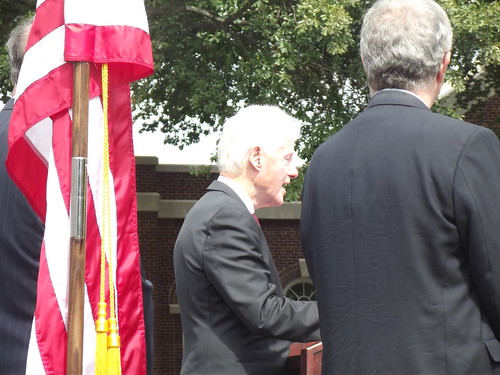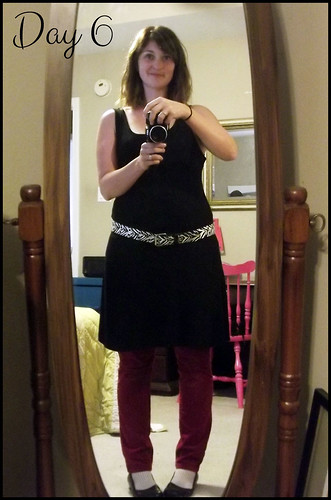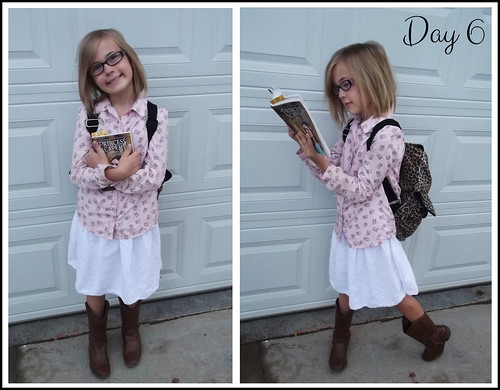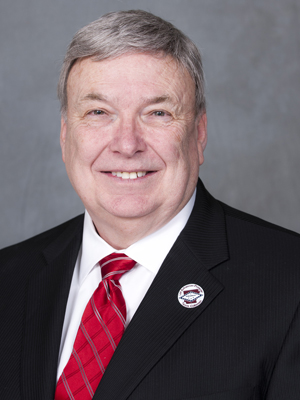 |
| Fireworks because this is so awesome. |
The EVEN NEWER 100 Things About Me: (2016)
1. I was born, raised and educated in Arkansas, the Natural State. (Previously known as "The Land of Opportunity".)
2. I attended the University of Arkansas at Fayetteville and got my degree in English with an emphasis in Creative Writing.
3. I then married a Scotsman named Scott and moved to Greenock, Scotland, where we stayed for nine years.
4. During those nine years, we created three awesome and insane children, Fifi, Lolly and Jaguar (not their real names).
5. When Jaguar was 10 months old, the five of us moved back to Arkansas.
6. I was a devout Christian for 30+ years.
7. I am now an atheist.
8. I wrote a book about it.
9. In school and college, I went on several mission trips. These trips took me around the world to Venezuela, Mexico, Canada, Israel, Jordan, Pakistan, Wales and Scotland.
10. I've also been to France and England but not on a mission trip.
11. I love languages, and while I am the master of none, I have studied French, Arabic, Scots Gaelic and British Sign Language. I am very good at English though.
12. In fact, English grammar is my pet passion, and I love it so much that I took an advanced grammar course in college FOR FUN. It was a required course for aspiring English teachers, and I was the only person taking that class as an elective.
13. When I moved to the UK, I purchased Fowler's Modern English Usage, so I could adapt to proper British grammar instead of American. Moving back to the US and re-adapting to American grammar has been confusing.
14. Speaking of grammar, one of my embarrassing intellectual memories includes freshman year in college writing in a paper that I was great at "grammer" and the professor replying in red ink "just not at spelling?". Cringe.
15. Also, I love the Oxford comma, but a career requiring AP style is slowly dousing that flame. I still believe in it but not as passionately as I once did.
16. Speaking of career, I am the regional communications director for the American Red Cross Serving Oklahoma and Arkansas. I have previously kept that anonymous, but to avoid conflict of interest, I fully disclose that now.
17. And I disclose that also to state that all opinions shared in this blog are mine (or used to be mine) and are not the opinions of my employer. (Disclaimer complete. Moving on.)
18. Before working for the Red Cross, I worked in communications for a health care nonprofit, where I learned that according to AP style, "health care" is two words, not one. However, "voicemail" is now one word.
19. My hobbies change frequently, but over the years they have consisted of baking, sewing, card-making, painting, acting and exercising. The only hobbies that have truly weathered all the seasons of my life though are writing and reading.
20. Hobbies I have tried to take up but failed at miserably include gardening and crocheting.
21. I used to bite my nails horribly until I turned 18. At 18 I decided to become a grown-up and somehow kicked the habit. Now I'm kind of precious about my nails.
22. I do still bite them when I get nervous or anxious though.
23. I get anxious a lot actually and have a serious problem with over-analyzing everything in my life. Even my therapist tells me I need to get out of my own head and stop over-thinking everything.
24. I've just started seeing a therapist. I feel sorry for her.
25. Along with anxiety, I also deal with depression, body image/relationship with food and ADHD.
26. I cope pretty well with all of those things though. Or so I think. My therapist may think otherwise.
27. I also struggle with a whole slough of issues stemming from my life as an evangelical, Calvinist Christian, that I'm only just starting to unpack. I know that's an unpopular thing to say in the Bible Belt where being a Christian is supposed to be the best life choice for happiness and well-being, but in my spiritually masochistic heart, it wasn't.
28. Even though I'm an atheist, I'm not a "militant atheist", and I don't hate believers of any faith. I genuinely hope all people find peace and happiness in their faith or lack thereof. So I will never try to convince someone to stop believing what they believe. I'm afraid too many people don't understand that about me though.
29. I was a DJ for our college radio station, KXUA. I called myself DJ Xia and for some reason always spoke in a low voice while on the air. I certainly hope that I have kicked that habit now, especially as my job requires some on-air time here and there.
30. I like to change the subject sometimes when it gets too intense or controversial.
31. I used to be one to avoid conflict, and at times I still do when the conflict is unnecessary, but I'm also now very good at approaching conflict head on when needed. I will be frank with you if it will make a bad or weird situation better.
32. I am a control freak and a perfectionist.
33. I am ambitious and competitive.
34. I am also a really good listener.
35. I am relentlessly too honest and am trying to learn if that's a good thing or a bad thing.
36. When I was in fifth grade, I accidentally set part of my grandpa's cow field on fire with a bottle rocket. It was absolutely terrifying watching at least an acre, if not more, instantly become engulfed in flames. (No one was hurt.)
37. I was afraid of fire for a very long time after that. Couldn't even stand candles.
38. My other childhood fears were kidnappers and burglars. I blame Unsolved Mysteries and Rescue 911.
39. I also had a lifelong phobia of spiders. FOR REAL PHOBIA. I could not get close enough to them to even kill them or stick a cup over them. But when I moved back to Arkansas as a mother who had to protect her children from the (sometimes venomous) evil eight-legged hellspawn, I had to overcome that fear in order to get close enough to them to kill them. Now I hate them but don't have panic attacks over them. (Which is no lie - I used to have panic attacks over spiders.)
40. I used to have a pet lhaso apso named Bandit. He got dognapped.
41. I always think I'm a pet person, because I love other people's pets. But I'm not good at taking care of my own pets. We've had cats, rabbits, a rat, fish and now a dog. Luckily my husband is a really good dog daddy, and my cat fends for itself.
42. Even knowing I'm not a good pet parent, I still want a lhaso apso or some other kind of lap dog to be my best friend. I also always think I'd like a bird.
43. And for my yard I want chickens and a goat. Scott says absolutely not to the goat, but I think there's wiggle room with the chickens.
44. I am not a vegetarian, even though ethically I think I really should be one. We did try becoming vegetarians once but only lasted a week. I don't really like vegetables.
45. To make up for not being a vegetarian, I buy only free range eggs. I used to only buy free range chicken too, but holy hell that's expensive.
46. Still, every time I pass a chicken truck on the road, I re-evaluate my stance on eating meat.
47. I am a passionate breastfeeding advocate. I used to be a breastfeeding peer supporter with the Breastfeeding Network, and my mummy friends and I started a series of weekly breastfeeding support groups throughout Inverclyde, Scotland.
48. We also started a nonprofit (not-for-profit is actually what it was called, since it was in the UK) called Inverclyde Breastfeeding Mums, and we did some pretty cool stuff.
49. I breastfed all three of my kids for two to two and a half years each.
50. I even tandem fed my daughters for a few months.
51. While a "stay-at-home-mum", I taught baby signing classes, worked as a childminder and ran a online shop called Into Bento, which sold bento boxes and lunch accessories. (The shop is closed, but I've kept the Lunch Is Boring blog online.)
52. I also had the privilege and pleasure of doing some travel writing for SearchScotland.org, now SlainteScotland.com.
53. I used to be the desktop publisher for a private high school in Glasgow. I designed, laid out, wrote for and edited the annual magazine and the monthly newsletters. I saw the job advertised in the paper, had no experience with Photoshop or InDesign whatsoever, but quickly taught myself the basics, interviewed for the job and got hired. It was the best "fake it 'til you make it" experience of my life. It got me on my communications career path.
54. I believe in "fake it 'til you make it", as long as you know you are capable of making it.
55. I am also a chronic sufferer of impostor syndrome, so what do I know?
56. I think I am a strong leader and a good manager. But I'm also a self-doubter and my own worst critic, so ask me again tomorrow and I might say the exact opposite.
57. I used to think of myself as solely right-brained, but as it turns out, I'm pretty left-brained too. I'm creative but analytical, scatterbrained but organized, emotional but rational. I'm either a unicorn or a hot mess.
58. I'm definitely an extrovert though.
59. I'm ENFJ to be precise (Extrovert, iNtuitive, Feeling, Judging). The F and J are very close to the T and P though (Thinking and Perceiving).
60. I love monkeys. I have a unrealistic dream of having a pet monkey one day, like an organ grinder kind of monkey.
61. My favorite colors are orange, green and purple.
62. I want an orange car.
63. I enjoy sorting and folding laundry. It calms me.
64. I hate sweeping but love vacuuming.
65. I never call it vacuuming; it's still "hoovering" in my mind. Just as gas is still petrol, diapers are still nappies, underwear is still pants, and Scotch is still whisky. Some British and/or Scottish words will never and should never die.
66. Because words like crabbit, dreich, numpty, mingin', boggin', steamin', glaikit and tumpshie just do not have proper English equivalents.
67. I love shoes.
68. I love makeup. I never wore it much until I turned 30. Then, as with the nail biting, I decided to become a grown-up and start wearing it. I love wearing makeup now.
69. I love my hair. My hair has been every cut, style and color imaginable. It's always been pretty short until I moved back to Arkansas. I've been growing it out ever since, and I LOVE having long hair. It's also managed to stay the same color for a while now, which is weird and likely to change soon.
70. I was in Forensics in high school. Not the study of dead people but competitive speech and drama. My favorite events were poetry reading, improv, duet acting, solo acting and mime. I was actually pretty good at mime.
71. I did musical theater in high school as well but never got a lead role in a musical. I did play Truvy in Steel Magnolias though.
72. So then in Scotland I got involved with amateur dramatics and did theater there too. Again, no lead roles except for Shelby in Steel Magnolias. It was by far my favorite part I ever played.
73. But actually I did play a few other lead roles. In Scotland I performed in pantomimes, which are not the same thing as silent mime, and was the Principal Boy a couple of times. Panto is amazing, and I wish they did them here in the States.
74. In high school I entered two beauty pageants. I was not the beauty pageant type, but hello, scholarships! I got a measly $500 scholarship out of one of them for winning the "Be Yourself Award" or something stupid like that. In the interview, they asked me about my second place state championship award for mime and asked me to do a mime of how I felt getting ready that morning. I wanted to kill myself.
75. I had the best friends in high school. Many of us still keep in touch to this day, and many of us have the most awesome lives now. Class of 2000 was an epic class.
76. I also had some really awesome friends in Scotland. Even though we're an ocean apart, I still know I could call many of them, and they'd be there for me.
77. I now have some awesome friends thanks to the book club I joined. The Velociraptors in an Opium Den ladies are, well, awesome. And we actually read books in this book club.
78. I love to sing. I used to lead worship at church, but now that I don't have church, or musical theater for that matter, I just sing in the car really loud. And sometimes I karaoke.
79. My favorite alcoholic beverages are gin and whisky ("Scotch"). I like my gin with tonic or juice, and I drink my whisky neat.
80. I never win anything, except that one time I won the Glenmorangie grand prize of a weekend trip for eight to stay at the Glenmorangie House in Tain, Scotland. Scott and I, along with three other couples, spent a three-day weekend enjoying activities such as skeet shooting, yachting Loch Ness, strolling along the beach, touring the Glenmorangie distillery and drinking all the free whisky we wanted. Best prize ever.
81. Oh, and I also won a pager from a radio station in the '90s. I was so cool.
82. I used to go to raves in the '90s too. I started out a kandie kid, ended up a jungle lover. My raver name on the rave forums was xialuvsjungle.
83. I then got into indie and became a really unsuccessful hipster.
84. I used to be the door girl at two bars, JR's Lightbulb Club and the Dickson Theater.
85. Other career choices in my past include Little Caesar's and Pizza Hut in high school. I also worked in a law firm during the summers.
86. While at college I also worked in the university's development office. Somehow I managed to do school full time, work in the development office between and after classes, and be the door girl at night. I don't know if college students get more hours in their day than adults do? Or maybe the secret to success is living off $5 Eureka pizzas and Diet Dr Pepper.
87. It certainly wasn't beer, because I did not drink alcohol until I was 21. I got very sick on my 21st birthday.
88. My birthday is April Fools Day.
89. My best birthday party was my 30th. I had a "Music Mania" party complete with karaoke and a DJ and all things '80s and '90s. Everyone dressed up as a music sensation. I was very pregnant but pulled off a pretty sweet Gwen Stefani.
90. I do not think I'd ever like to be pregnant again.
91. I have changed a lot as a mum, but the things I still believe in are gentle parenting (no spanking), babywearing, infant cosleeping, breastfeeding and dinner together around the table. As my kids get older I'm entering a whole new world of parenting, which is terrifying, but I think I'm doing okay.
92. I am without a doubt screwing up my kids.
93. I love working for the Red Cross, as it matches my natural inclination for helping others. I also strongly support other causes, such as LGBT rights and women's rights. I actively support causes such as Lucie's Place, a home for LGBT young people, and Femme International, which provides among other things reusable feminine hygiene products for girls in Africa who would otherwise be unable to attend school for a week every month due to her periods.
94. I am a feminist.
95. For someone who has no problem posting intimate details of her life online and publishing a book about the most vulnerable time in her life, I am very guarded and trust very few people in my real everyday life. In other words, I make no sense.
96. I hate for anyone to see me cry and hate to be seen as weak or needy. I like to be self-sufficient and hate asking for help.
97. I used to collect kokeshi dolls.
98. The only sports I care an ounce for are soccer, tennis and baseball. The only sports team I care about is Glasgow Rangers, and even they are not really on my radar anymore.
99. I love politics. I am a registered Democrat though I'm more left wing than they are.
100. I love making lists.
P.S. My old 100 Thingses are still on the About Me page if you scroll down. They make me giggle, because some are still true and some are SO NOT.

